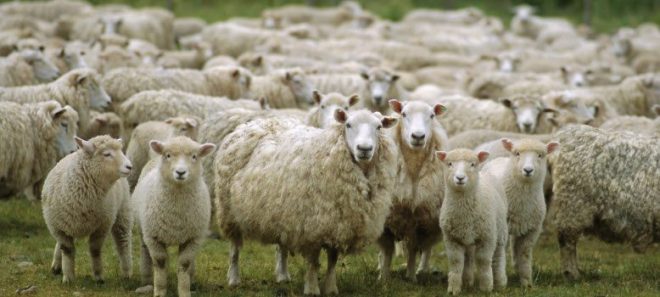
THE Department of Agriculture is undertaking investigations in Donegal after sheep from a flock in the county were found to contain a disease that can be transmitted to humans.
The Donegal News has learned that in recent weeks officials from the Department effectively shut down at least one farm after a veterinary inspection of carcasses at a meat plant revealed they contained sarcocystosis.
The Department also confirmed that the current outbreak relates only to one farm in the county, however it is understood that a second farm in the east of the county is also be under investigation for a similar outbreak.
A well-placed source told the Donegal News that number of sarcocystosis detections on farms in Donegal since last year is cause for extreme concern.
Lambs contract sarcocystosis from dogs who, in turn, get it from eating offal containing the parasite. It is mostly detected after the animals are slaughtered, when cysts can be seen on the meat.
Symptoms of the condition in people include stomach aches, nausea, headaches, fever and diarrhoea. Where humans have contracted it in the past, infected meat was blamed.
In response to a query from the Donegal News, the Department of Agriculture confirmed that sheep from a flock in Donegal had been condemned, giving rise to their ongoing investigation.
“In recent weeks, during the course of routine post mortem inspection, sheep from a farm in County Donegal were deemed to be unfit for the food chain and disposed of appropriately. Preliminary investigations indicate sarcocystosis in the sheep.
“The investigation into this matter is ongoing, but DAFM is satisfied that the necessary controls have been effectively implemented to safeguard public health for the benefit of consumers and the wider society.
When an outbreak like this occurs on a farm the Department of Agriculture, Food and the Marine restrict it, which means that animals from there cannot be moved or sold until it is declared disease-free.
The Department stressed that it is its stringent controls on food traceability and quality that prevented the diseased meat from entering the food chain.
It stated: “The Department of Agriculture, Food and the Marine operates a comprehensive system of ante and post mortem veterinary inspection on all animals slaughtered in Irish meat plants. Only meat from those animals that pass both inspections are eligible for the food chain. Where animals fail to meet the required standards, they are excluded from the food chain.”
A senior source in the farming industry said: “As far as I understand there have been three cases now linked to flocks in Donegal. This could have severe implications for the county’s reputation as one of the country’s main lamb producing areas. Poor animal husbandry practices are obviously giving rise to these detections, and the issue needs to be highlighted. We are fortunate that Ireland’s stringent practices in terms of food quality and traceability picked up these cases of sarcocystosis.”
Quality control
Should an infected carcass slip through the quality control procedures in Ireland it could have severe implications for the meat industry. Such a breach could potentially damage exports if infected product from the Republic was found in another country who could then limit or even ban imports.
According to the Food Safety Authority the disease is rare here and is “more prevalent in cultures where raw meat is commonly eaten”. It does not have to be notified to the State’s Health Protection Surveillance Centre.
In June of last year more than 400 lamb carcasses were condemned at meat plants after an outbreak of sarcocystosis arising from a Donegal farm. The recent incidents are not related.
The number of sarcocystosis detections on farms in Donegal since last year is cause for extreme concern.
Farm shut down after another case of disease
Posted: 9:30 am April 27, 2018
Posted: 9:30 am April 27, 2018
Advertisement









